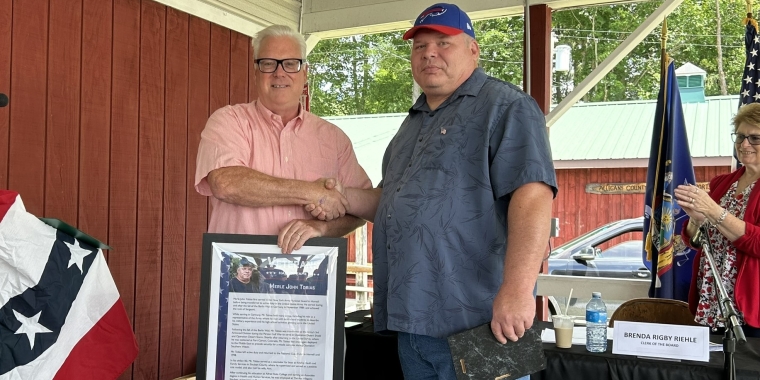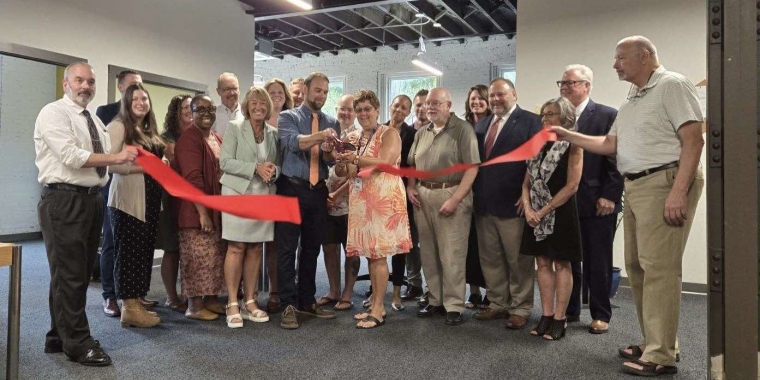
O’Mara continues to sponsor legislation targeting meth crimes: repeat offenders, those cooking meth in presence of a child, would face harsher penalties
February 16, 2017
-
ISSUE:
- Methamphetamine

Elmira, N.Y., February 16—In addition to his work as a member of the Senate Task Force on Heroin and Opioid Addiction, State Senator Tom O’Mara (R,C,I-Big Flats) has also reintroduced legislation targeting the resurgence of methamphetamine-related crimes locally and across New York State by significantly increasing the criminal penalties for manufacturing the illegal and highly addictive drug.
One piece of legislation (S2123) targets the operation of meth labs. It would increase the criminal penalties for the possession of meth manufacturing material and the unlawful manufacture of meth, implementing a series of increasingly severe felony offenses.
“Meth labs, including the increasingly prevalent one-pot method, pose unacceptable risks to our neighborhoods, roadsides and wooded areas where children and others can be exposed to the hazardous and toxic residues of these labs. They threaten the safety of police officers and first responders, highway crews, hikers, kids playing outdoors and the public at large,” said O’Mara. “We need tougher laws against these dangerous and irresponsible meth cookers who have no regard for the health and safety of the rest of us.”
O’Mara is also sponsoring the following meth-related legislation to:
> increase the criminal penalties for the possession and/or sale of the drug by implementing an increasingly severe set of felony offenses (S2824). If enacted into law, state penalties in response to meth would be brought more in line with the penalties for possessing and selling cocaine and heroin; and
> enhance the ability of local police and district attorneys to track and prosecute violations of restrictions on over-the-counter sales of cold medications that are key ingredients used in the manufacturing of methamphetamine (S1236). O’Mara co-sponsors this measure in the Senate.
The Senate has consistently given strong, bipartisan support to O’Mara’s meth proposals over the past several years, but the measures have stalled in the Democrat-controlled Assembly.
Over the past few years, Southern Tier law enforcement officials have issued warnings about the increasing disposal of “one-pot” meth labs along regional highways and roadsides, and in wooded areas, where they pose a danger to local residents, children, hikers and highway crews, as well as police officers and first responders.
O’Mara has highlighted the increasing frequency of meth lab-related arrests and other incidents across the Southern Tier and Finger Lakes regions as the impetus for imposing stricter criminal penalties for possessing the material to make or for manufacturing the dangerous and highly addictive drug. The legislation he’s sponsoring includes a provision making it a Class A-1 felony, punishable by a maximum sentence of 20 years in prison, for criminals convicted of operating a meth lab for the second time in five years. Currently that Class B felony carries a maximum prison sentence of nine years. The legislation also establishes the crime of manufacturing meth in the presence of a child under the age of 16 as a Class B felony. The possession of methamphetamine manufacturing material in the first degree would increase from a Class E to a Class D felony, punishable by up to two-and-a-half years in prison.
“From bath salts and heroin to meth and synthetics, the resurgence of these drugs has become alarming across the Southern Tier and Finger Lakes regions,” said O’Mara. “The only byproducts of these drugs are addiction, overdoses, tragic deaths and violence. They increasingly burden local systems of health care, criminal justice and social services. Awareness and education, prevention and treatment are fundamental responses. But so are tougher laws and criminal penalties, and it’s time for the Assembly Democratic leadership to join us in acting this session.”
Share this Article or Press Release
Newsroom
Go to Newsroom


